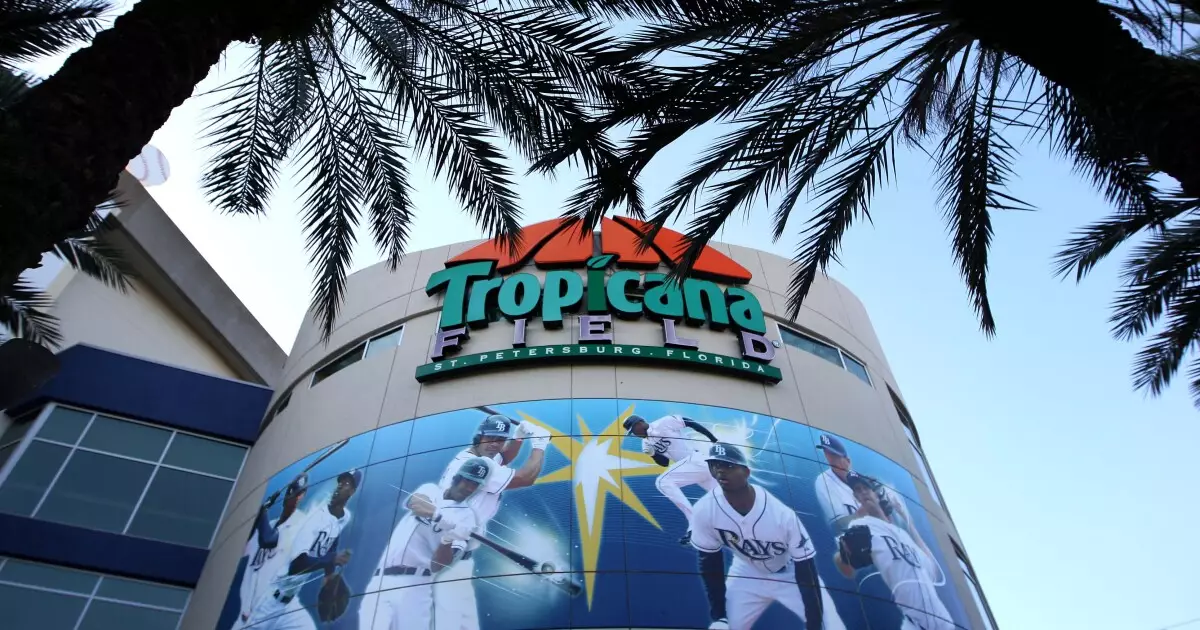The interactions between the Pinellas County Commission and Major League Baseball’s Tampa Bay Rays have reached a critical juncture, marked by rising frustrations and an uncertain future. As the Rays push for a new financing deal, the county commission’s hesitation to approve $312 million in bonds for a proposed stadium raises serious questions about the viability of future developments. This situation reveals not only the challenges of local governance but also the implications of recent disasters and changes in public sentiment.
In a significant turn of events, the Pinellas County Commission voted 6-1 to postpone a crucial decision concerning the stadium’s financing. This failure to move ahead not only jeopardizes the anticipated 2028 completion of a new ballpark but also places tremendous financial pressure on the Rays. In their correspondence with the commission, the team noted that extending the timeline to 2029 would lead to substantially increased costs—an outcome they are unable to shoulder alone. This cheapening of a once-promising project demonstrates how quickly circumstances can shift, particularly in the aftermath of natural disasters that affect local economies.
Market Considerations and Local Sentiment
Local sentiment appears to be shifting following a hurricane that ravaged parts of the region, triggering a reevaluation of priorities. Comments from analysts, including Muni Credit Today’s Joseph Krist, highlight the fact that just months ago, the Rays were heralding a new stadium as a much-anticipated development. However, the recent hurricane and the resulting economic strain have altered the financial landscape and public perception of luxury expenditures. Krist aptly notes that the television market for the Tampa-St. Petersburg area is one of the largest, suggesting that Major League Baseball would be reluctant to abandon the potential revenues derived from this region. Yet, the evident tensions between the Rays and the county commission indicate that all parties involved may need to reassess their positions.
Within the commission itself, opinions are sharply divided. Some commissioners have openly criticized the Rays, asserting that their approach to negotiating the stadium deal has demonstrated insensitivity to the community’s circumstances post-hurricane. Critique has also been aimed at the team’s sense of corporate responsibility, particularly concerning the resulting damages and ongoing recovery efforts. Meanwhile, proponents of the stadium argue that the long-term economic benefits justify the investment. Commissioner Kathleen Peters expressed optimism over the taxes generated from increased economic activity stemming from the new facility. However, this rosy outlook clashes with the stark figures presented by Commissioner Vince Nowicki, whose assessment revealed that only a minuscule percentage of tourists engage with the Rays. Such discrepancies in the perceived value of the investment question the fundamental strategy behind the finance proposal.
Impact of Recent Hurricanes on Stadium Prospects
The impact of Hurricanes Helene and Milton cannot be underestimated, especially as they complicate the already difficult discussions surrounding the stadium. With damage to Tropicana Field leaving the team seeking alternate venues for their seasons, the financial burden of repairs presents yet another hurdle. Expected repair costs are projected to exceed $56 million, contributing to growing financial pressures on the county, which is also dealing with a substantial insurance deductible and the potential shortfall of federal emergency funds.
The Road Ahead: Uncertain Prospects
As discussions continue to falter, the complexities surrounding the Rays’ ambition for a new stadium signal broader trends in how municipalities negotiate with professional sports teams. The Rays have expressed their desire to improve public infrastructure while enhancing their connection to the community, yet the tensions with county commissioners demonstrate a growing chasm between high-stakes needs and political realities. The upcoming December vote may prove pivotal; however, local stakeholders’ sentiments and recovering communities mean that a consensus may remain elusive. In an environment where economic recovery is the priority, the notion of funding luxury entertainment may be increasingly scrutinized, leading to an uncertain trajectory for both the Rays and the city of St. Petersburg.

